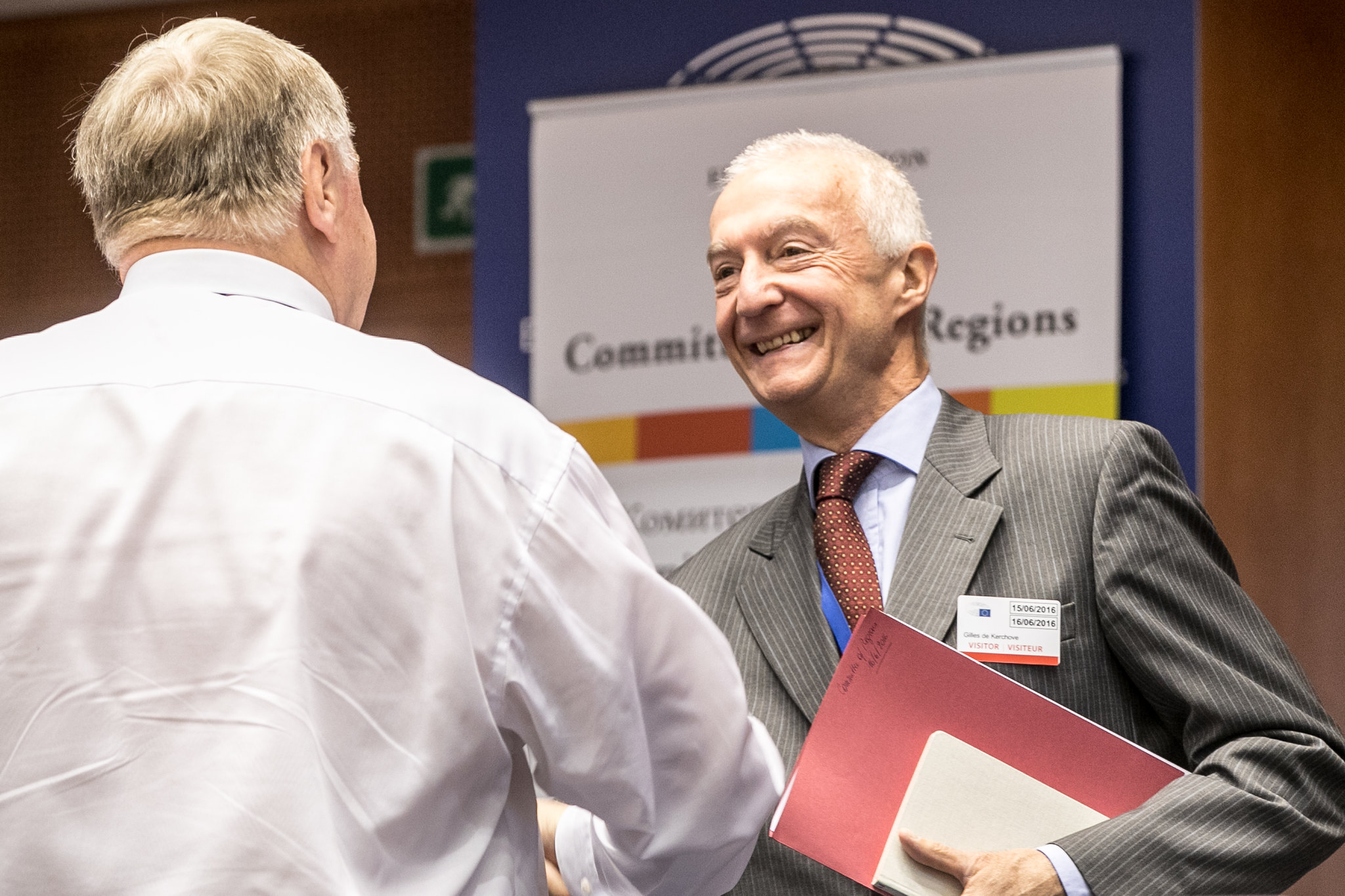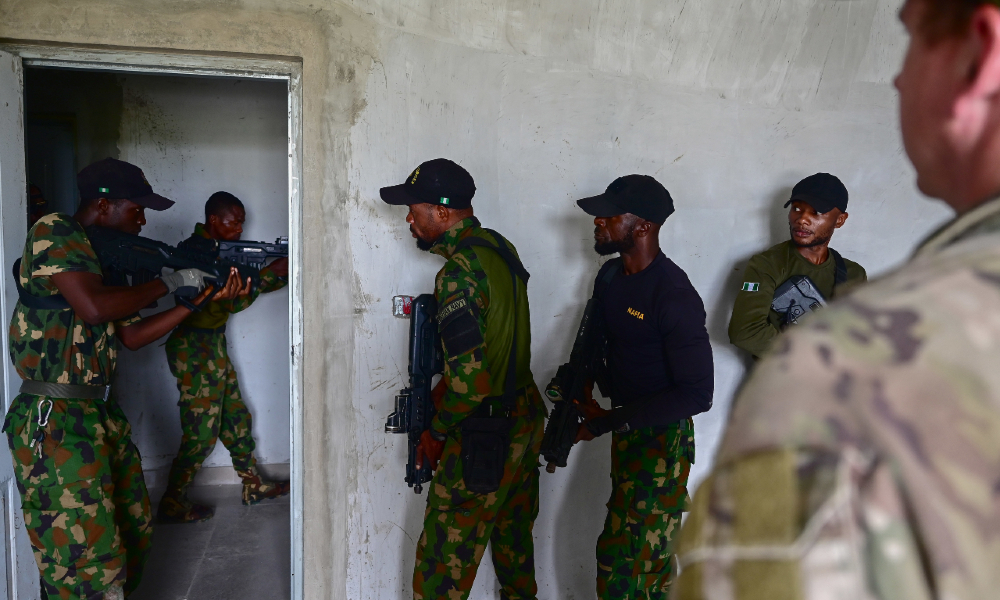A Belated Farewell to (and a Liber Amicorum Honoring) Former EU Counterterrorism Coordinator Gilles de Kerchove
Some reflections on de Kerchove’s tenure.

Published by The Lawfare Institute
in Cooperation With

We write belatedly to observe the retirement at the end of August of one of Europe’s best-known and longest-serving security officials, Gilles de Kerchove, who was the European Union’s counterterrorism coordinator from 2007 to 2021. He had served previously as director of justice and home affairs for the Secretariat of the European Council from 1995 to 2007. As counterterrorism coordinator, de Kerchove took a role with no formal decision-making powers or budget and turned it into the cockpit for EU coordination of counterterrorism policy and operational activities with its member states, foreign governments and international organizations. He was and remains a great friend of the United States. Both of us had the privilege to work with him for many years, as did many other U.S. officials in the departments of Justice, State, and Homeland Security and other agencies.
In honor of de Kerchove’s retirement, his EU colleagues Christiane Hoehn and Isabel Saavedra, and Professor Anne Weyembergh, organized a Liber Amicorum (book of friends) entitled “The Fight Against Terrorism: Achievements and Challenges,” which was published in July and contains essays by more than 100 contributors in Europe and the United States, including both of us. Together the essays offer numerous deep insights into transatlantic counterterrorism efforts and cooperation.
Many of the essays by current and former EU officials examine the union’s growing body of internal security law, ranging from legislation criminalizing terrorist conduct and harmonizing procedures for extradition of criminals (Hans Nilsson and Clemens Ladenburger) to the jurisprudence that has developed to protect individual rights (Jean-Paul Jacqué, Koen Lenaerts and Lars Bay Larsen). Other contributors (Vladimir Voronkov and Jean-Paul Laborde) appraise the effectiveness of the United Nations’ efforts to combat terrorism—initiatives that the EU has strongly supported—as well as work by other international organizations including Interpol (Juergen Stock) and NATO (Jamie Shea).
De Kerchove’s committed transatlanticism is reflected in a series of essays by former U.S. officials with whom he collaborated over the years. Former Department of Homeland Security Secretary Michael Chertoff considers the shared needs of Western intelligence agencies. John Bellinger’s essay probes the hard international law questions surrounding the detention of transnational terror suspects. Bruce Swartz, deputy assistant attorney general at the Department of Justice, looks at transatlantic law enforcement cooperation; and Kenneth Propp, former legal counselor at the U.S. Mission to the European Union, examines the U.S.-EU Passenger Name Record (PNR) and Terrorist Finance Tracking Program data-sharing agreements hammered out with de Kerchove’s involvement. U.S. Ambassador Anthony Gardner, who served in Brussels during the Obama administration, contributed a letter noting de Kerchove’s achievements during his tenure.
The book is much more than a review of counterterrorism efforts of the past two decades, however. Rather, numerous writers tackle the difficult new challenges that have emerged. For example, former Belgian Minister of Justice Koen Geens takes up the politically sensitive question of the shifting boundary between EU member states’ national security sovereignty and the EU’s competence over data protection. Europe’s reluctance to accept back into its territory jihadi returnees and their families comes in for scrutiny (Thomas Renard). So do a host of other issues relating to the Islamic State, from the support it received from the Syrian government (Matthew Levitt), to the trafficking of cultural property (Matthew Bogdanos, Tess Davis and Elie Cavigneaux), to radicalization in prisons and schools (Elisabeth Guigou and Amanda Spielman) and over the internet (Rob Wainwright and Vera Jourova).
De Kerchove has not let his former colleagues have the final word on the state of today’s counterterrorism threat, though. He offers a mixed assessment. “Today’s threats are often larger and more complicated than those of two decades ago,” he recently wrote, adding that “our ability to counter them has expanded exponentially.” He particularly praises strong information-sharing relationships among U.S. and European law enforcement, military and security agencies.
But transatlantic gulfs remain in important areas. The U.S. withdrawal from Afghanistan may leave Europe more vulnerable to the effects of an al-Qaeda resurgence, while reducing the flow of American intelligence derived from Afghanistan to Europe’s security authorities. Another divisive aftereffect from military activities against Islamic terrorism is that the United States urges reluctant European governments to repatriate its citizens who supported the Islamic State and are now in limbo in Syrian camps, while Europe still reproaches Washington for its continued detention of Guantanamo prisoners.
De Kerchove, like other close observers of the terrorist scene, believes that right-wing and racially or ethnically motivated violent extremism now demands greater attention and resources. He praises Europe for being quicker than the United States to spot and sanction such groups as terrorist organizations. He worries about the role of the internet in amplifying hate speech and disinformation, while acknowledging the greater constraints that the First Amendment places on U.S. government efforts to control it.
De Kerchove will be greatly missed by his many colleagues in Washington. The Liber Amicorum highlights his many contributions and shows how deeply he was and is respected.






